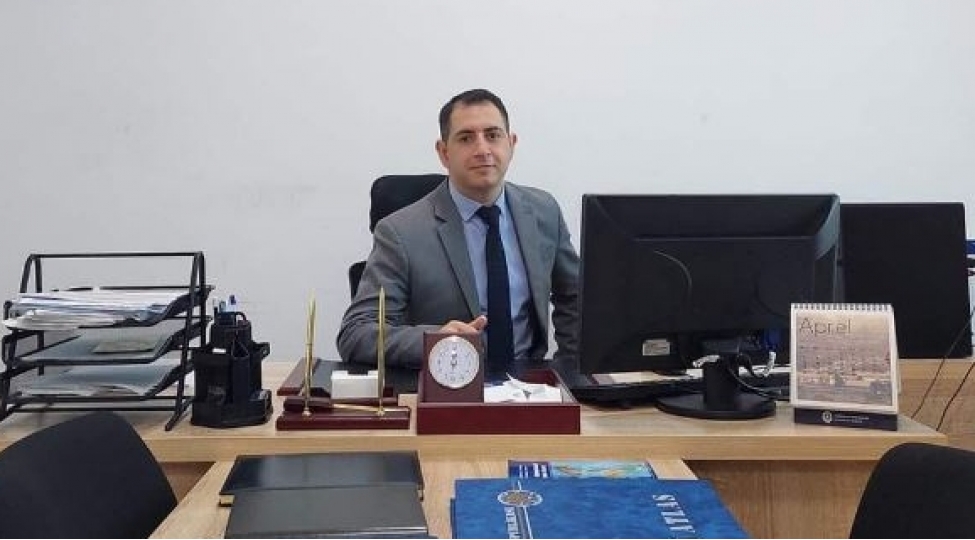Ecologist Mirjavad Seyfili: “Researching alternative energy sources, studying their potential, and applying green technology in the liberated territories will be an important contribution to the creation of a quality ecological environment in this region.”
Protection of the environment in our liberated territories, compliance with ecotourism standards and proper use of the region’s potential in this regard are important factors in economic reintegration. The massive return of the population to our liberated territories, the creation of settlements and modern infrastructure there has returned Karabakh to our society. However, the mass settlement of these areas, at the same time, the growing international interest in Karabakh, and the desire of foreign tourists to travel make the setting of tourism, especially ecotourism standards, urgent in the region. Opinions and proposals of experts and scientists on the subject are of interest to our society.
Our interviewee is environmentalist Mirjavad Seyfili.
-Protection of the environment in our liberated areas, including water bodies and their bioresources, as well as other natural resources, is also important in terms of compliance with the principles of “green growth” in our country. In this context, how do you evaluate the measures implemented in our country, including the liberated areas?
– The steps taken in the direction of researching alternative energy sources, studying their potential, and applying green technology in the territories freed from occupation will be an important contribution to the creation of a quality ecological environment in this region.
You know that the nature of Karabakh and East-Zangezur economic regions, In the pre-occupation period, two state reserves, as well as sanctuaries, operated for the protection of flora and fauna. In about 30 years, the territory of Karagöl and Basitchay State Nature Reserves has been subjected to ecocide. In total, the area of specially protected nature areas in the “territories freed from occupation” is more than 40 thousand hectares.
During the occupation, the pollution of rivers in our territories was also a part of the green genocide policy carried out by Armenians against the nature of Azerbaijan. Okchuchay, which is a trans-border river, has become a disaster zone. Currently, works are being carried out in this region in the direction of restoring the activity of nature reserves and sanctuaries and reintroducing flora and fauna. In particular, work is being done to study the bioresources and hydrological regime of the rivers flowing through the liberated territory. The hydrological network, which was rendered useless during the occupation, is now being restored thanks to the most modern automatic hydrological stations. According to the information I have, more than 10 automatic hydrological stations are already operating.
The implementation of such measures is very important in the way of achieving the commitment that our country made at COP29 regarding the creation of a “net zero emission” zone in the territories freed from occupation.
– It is profitable from the economic point of view to take advantage of the potential of ecotourism by following the principles of “green growth” and thereby contribute to the effective reintegration of those areas. It is also reported that the touristic potential of that region is high. From this point of view, what steps should be taken to develop ecotourism in those areas?
-There is no doubt that tourism is one of the important areas that bring income to the economy. The unique nature of the territories freed from occupation and the high potential of recreational resources are no secret to anyone. Today, the state organizes visits and tours to those areas for people from different categories, including international and local media representatives. However, there should be a clear action plan for the development of ecotourism. This includes security measures, further improvement of the road infrastructure in those areas, restoration of greenery, work to increase the richness of the area’s fauna, etc. includes I think that as such steps are taken within the framework of the First State Program on the Great Return, the tourism sector of the region will also develop.
-Education of the population relocated to the regions, ecotourism enthusiasts, amateur fishermen and other groups in terms of environment and ecotourism is the need of the day. What actions are needed in this direction?
– Do you know that 2024 has been declared the “Year of Solidarity for the Green World” in our country. In this regard, the plan of actions implemented by the relevant state institutions regarding the declaration of the “Year of Solidarity for the Green World” has been adopted. The action plan includes the preparation of information booklets, brochures, booklets and other publications about Azerbaijan’s ecotourism routes, organization of trainings on environmental protection and “green activities” for business representatives, reintroduction of rare and endangered species of fauna and flora to historical areas. activities such as the implementation of measures, etc. have been included.
I think that conducting regular awareness activities with citizens on the mentioned activities will lead to the creation of a healthy environment in our liberated areas, which are undergoing the process of self-recovery.
-Measures related to the protection of bioresources and living things in water basins are also important in the liberated areas. What measures can be taken to prevent illegal hunting and poaching? What kind of suggestions do you have?
-Although legal measures are taken against poaching in our country, it seems that the known measures are not enough to prevent it. Hunting farms of national and local importance operate in our country. These farms are of exceptional importance for increasing game animal populations and hunting. I believe that the number of hunting farms should be increased. Establishing these farms in liberated areas will be very beneficial for these areas, where poaching has not yet had the opportunity to expand.
The article was prepared as part of the project “Standards of ecotourism in liberated territories”, implemented by the Public Union “Integration into the Globalized World” with the financial support of the Agency of State Support of Non-Governmental Organizations of the Republic of Azerbaijan. The position of the author or the interviewee and the position of the Agency of State Support of Non-Governmental Organizations may not coincide.


